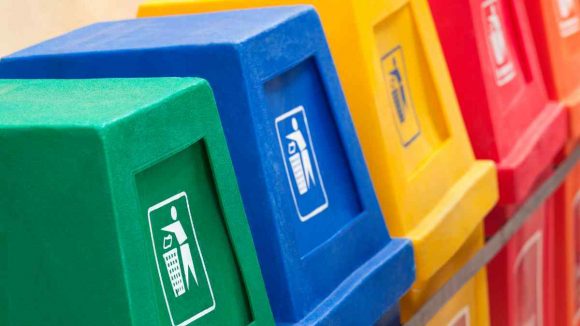Waste management companies specialize in optimizing the waste management process. The waste management solutions differ based on the type of waste involved. Optimizing existing practices is a standard business activity.
TechTarget notes that business optimization makes them more efficient, streamlines operations, reduces errors as well as costs and enhances workloads.
Waste management is one facet. An efficient waste collection system is as essential as sustainable development goals. Companies specializing in waste management can help optimize your business’s waste disposal methods in many ways.
Here are some benefits of having efficient routes for your business waste:
- Save a business time and money.
- More environmentally friendly.
- It can be based on specific needs and wants.
- It showcases that a business can be efficient in all operational aspects.
This blog explores these benefits by highlighting how companies can optimize waste management systems.
Managing waste collection systems
Waste management systems vary in design, but there are some standard features. Here’s an example of a typical waste management stream in an office.
- An employee throws away a piece of scrap paper in the nearest bin.
- A janitor comes around once a day and empties the waste bins in a large skip outside. They do not sort the waste by type.
- Local municipal waste services bring rubbish collection vehicles and transport it to a waste disposal facility.
- The facility sorts the waste and separates it into different bins. One for waste that can be recycled or reused and those that cannot.
- Hazardous waste is removed from the system and dumped at a contained landfill site.
This standard waste management system is easy to imagine and might seem complete. But, for the savvy business owner, this system has much room for improvement.
How to optimize your waste management routes
A business can optimize its waste management routes in many ways. The best place to begin is with a waste management company.
Start with a waste audit
The first step to optimizing your waste management routes is to understand what your current system looks like. A waste audit can achieve this.
Cleanway defines a waste audit as a process where waste management companies “can uncover opportunities to enhance efficiency, reduce costs, and ensure regulatory compliance.”
Waste audits use historical data on your current waste generation to improve your systems. Before optimizing, you need to know how things operate. A waste audit is a great place to start because it’ll give a business a clear picture of its current waste routes.
Waste management companies can examine your current waste system’s operational costs, collection points, waste percentage per employee, waste generated, collection cost, environmental concerns, and many other factors.
They’ll use this data to create a more efficient waste disposal and management plan. A waste audit aims to find the optimal solution for a business’s waste collection needs.
A business can determine its systemic shortcomings with the help of a waste audit. Let’s expand on the earlier example to explore this.
The employee who threw the paper away was acting like most humans. According to a study conducted by the Texas Disposal Systems, the most common reason for incorrectly disposing of waste is human laziness. There’s a reason why we flock towards the closest bin.
But suppose there had been two bins next to each other. One of these bins had been labeled “paper waste,” and the other had been labeled “plastic waste.” The employee would likely have thrown their paper into the respective bin.
This small step can significantly increase the efficiency of your waste route. Separating waste before a waste collection service picks it up minimizes the work.
Because of this, you might find specific incentives, like money back per pound of paper recycled. With this new system, you’ll be helping the environment, and you might be making money.
Consider the surrounding environment
Many waste management systems currently in place are there to reduce the effects of climate change and greenhouse gas emissions. This is often what is meant by, ‘consider the surrounding environment.’
But it does not have to be the only one.
An effective waste management system minimizes the amount of discarded waste. One of the simplest ways to do this is by reducing disposal and increasing reuse.
If your surrounding environment includes a school, a church, or even a charity shop, consider contacting them to see what items they need.
Perhaps an old company computer, too out-of-date for the in-house computer programmer, could be given to a child in need. Many electronic waste items can be repurposed in this way.
This waste management route considers the role that businesses play in their community. Instead of producing tonnes of waste, try to be a company that services your local community.
Understanding your waste collection systems
The amount of waste generated during average business hours is high. Much of this waste ends up in municipal facilities. Understanding how to optimize your waste management routes is worth considering in terms of how waste collection systems function.
Solid waste collection is often tasked to local municipal solid waste collection services. They collect waste along designated collection routes.
Businesses that generate waste rarely consider transportation costs, fuel consumption, route planning, total collected waste, and other objective functions.
Businesses can help waste management systems improve service quality, reduce carbon emissions, and address other optimization problems.
How? By being more aware of their waste management routes. Try to recycle and separate waste before throwing it away. It saves work down the line.
This creates an entire waste collection system that operates at optimal efficiency.











